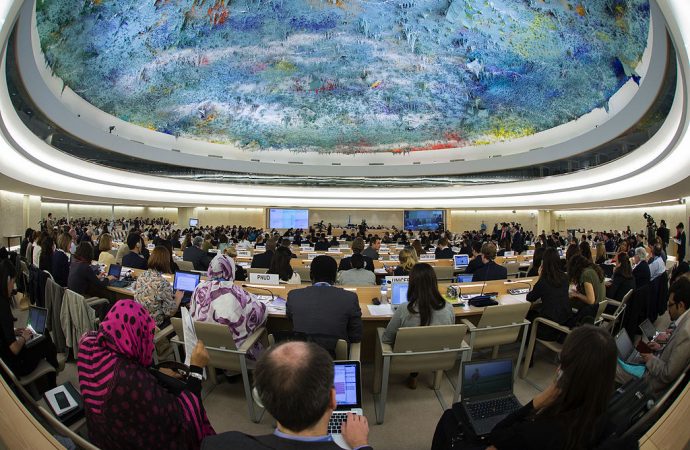An advanced, unedited version of a ‘general comment’ on the International Covenant on Civil and Political Rights by the United Nations Human Rights Committee wants to define abortion and assisted suicide as a human right.
“Although States parties may adopt measures designed to regulate voluntary terminations of pregnancy, such measures must not result in violation of the right to life of a pregnant woman or girl, or her other rights under the Covenant,” says the draft, placing the life of the mother ahead of that of the unborn child.
The Geneva-based United Nations Human Rights Council was established in 2006 to promote and protect human rights around the world. A “General Comment” is a UN agency’s interpretation of the provisions of the treaties to which it is a party.
The comment also says that States must guarantee “safe, legal and effective” access to abortion when the life of the pregnant woman is at risk, or when carrying the pregnancy to term could cause her pain or suffering, “most notably where the pregnancy is the result of rape or incest or is not viable.”
Yet, the body, headed by former Chilean President Michelle Bachelet, who legalized abortion under three situations in her country before leaving office, also argues that States “may not regulate pregnancy or abortion in all other cases in a manner that runs contrary to their duty to ensure that women and girls do not have to undertake unsafe abortions, and they should revise their abortion laws accordingly.”
It calls for the decriminalization of abortion, both for women and the medical providers assisting them, and State parties should “not introduce new barriers and should remove existing barriers” that deny access to a safe abortion, “including barriers caused as a result of the exercise of conscientious objection by individual medical providers.”
It also says that governments should guarantee “boys and girls” access to a wide range of affordable contraceptive methods, and prevent the stigmatization of girls seeking abortion. Furthermore, they should guarantee girls have access to post-abortion health care “in all circumstances, and on a confidential basis.”
In addition, the draft comment Crux had access to also calls on States to allow medical professionals to provide treatment to “facilitate the termination of life of afflicted adults, such as those who are terminally ill, who experience severe physical or mental pain and suffering and who wish to die with dignity.”
An earlier version of the draft was read in July 2017, during the 120th session of the Human Rights Committee and made available online by the UN, inviting “all interested stakeholders” to comment on the draft. Hundreds of submissions were presented, including many from pro-life advocacy groups from all over the world, but the Oct. 31 version shows that the language calling for States to guarantee access to abortion and assisted suicide remains.
Despite the strong words used, it’s worth noting that the General comment No. 36 (2018) on article 6 of the International Covenant on Civil and Political Rights, on the right to life, which replaces the comments adopted by the Committee in 1982 and 1984, is technically not legally binding.
“First of all, the UN Human Rights Committee has no power to create human rights,” said Mary Ann Glendon when asked to comment on the draft. “It is a body of experts with the sole duty of monitoring compliance by member states with the International Covenant on Civil and Political Rights (ICCPR).”
According to the Harvard professor, a former United States Ambassador to the Holy See and specialist in human rights in international law, the committee’s recent assertion that abortion is a “fundamental human right, and its preposterous claim that abortion rights are derived from the right to life protected by the ICCPR, show how susceptible UN bodies are to lobbying by interest groups that would like to see their agenda items recognized as universal rights.”
However, the fact that the comment is not legally binding, won’t prevent the bodies that enforce the treaty, such as the Inter-American Court of Human rights, to use it when ruling on specific cases.
Glendon told Crux that not “everything that has been called a right in one or more countries is a universal human right,” and this is why the framers of the Universal Declaration deliberately stuck to a small core of fundamental principles that were deeply rooted in the world’s major philosophical and religious traditions, and remained silent on many contentious matters, including abortion.
“Current attempts to expand the category of human rights are undermining the idea of universality,” she said. “Sadly, they are producing widespread skepticism about the continuing validity of the post-World War II human rights project that brought hope and freedom to millions around the world.”
Glendon will be among experts speaking at a Nov. 15-16 symposium on “Fundamental Rights and Conflicts Among Rights,” being held in Rome with the participation of experts from academia and legal fields to discuss the states of human rights today.

